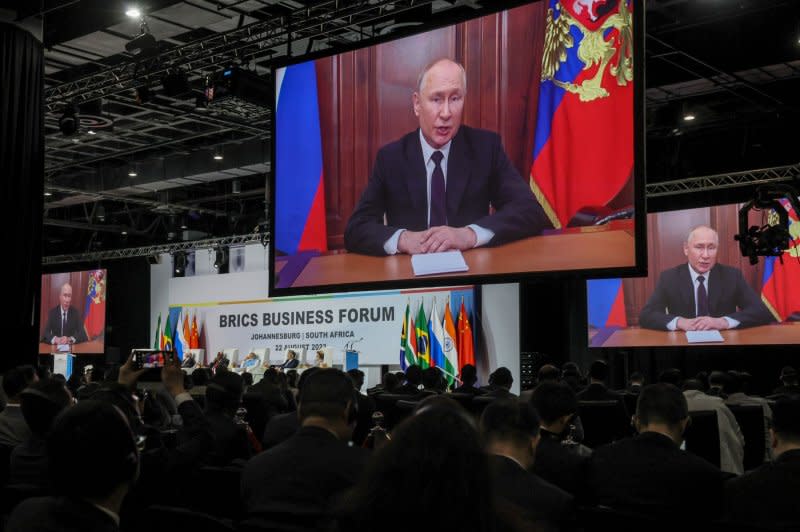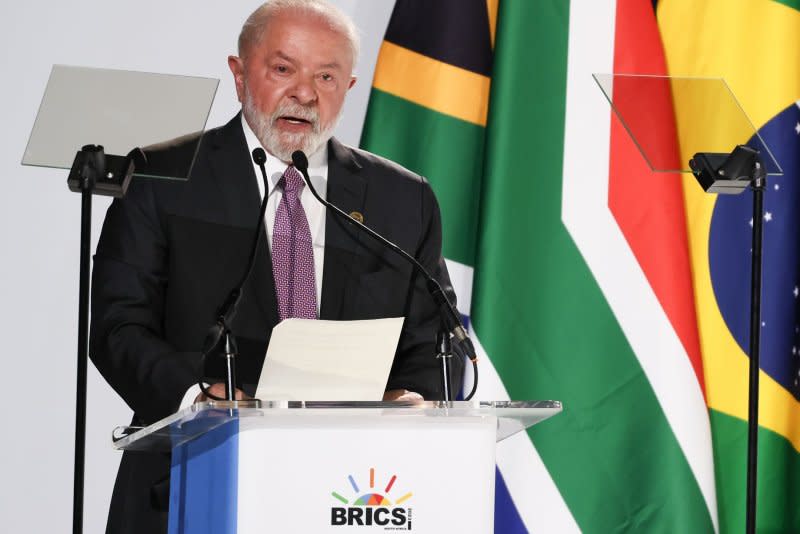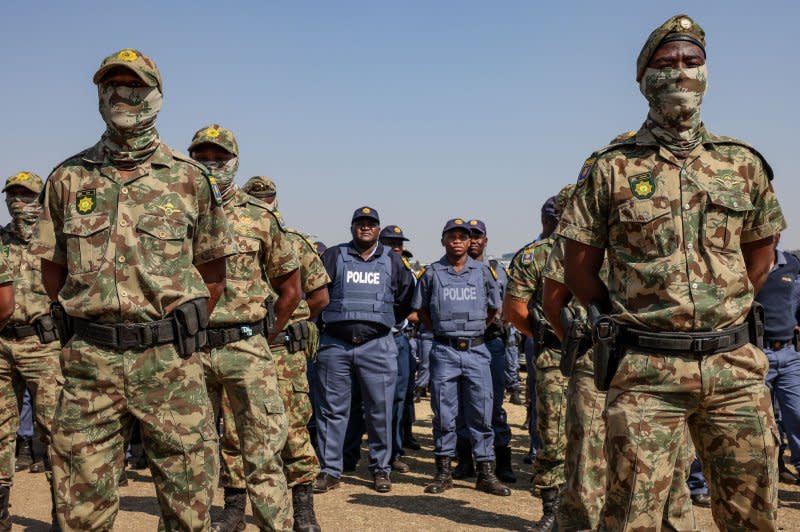Leaders of China, Russia, India gather for BRICS summit sans Putin

Aug. 22 (UPI) -- The leaders of China, Russia, India and Brazil gathered with dozens of dignitaries in South Africa for a three-day summit that seeks to build a coalition of currently unaligned powers that would counter Western influence throughout the world.
Russian President Vladimir Putin joined the conference virtually due to an active warrant for his arrest by the International Criminal Court -- of which South Africa is a member -- for alleged war crimes in Ukraine.
Representatives from more than 67 countries gathered Tuesday at Sandton Convention Center in Johannesburg for the 15th annual BRICS summit, as South African President Cyril Ramaphosa welcomed Chinese President Xi Jinping, Indian prime minister Narendra Modi, Brazilian President Luiz Inácio Lula da Silva, Russian foreign minister Sergei Lavrov, and a number of other leaders from across Africa, Asia, Latin America, and the Middle East.
Leaders are discussing expanding the organization's membership, with more than 40 countries wanting to join BRICS, including Ethiopia, Iran, Nigeria, and Saudi Arabia.
About two dozen nations at the conference have formally applied to join the budding alliance as the ongoing conflict in Ukraine was driving increased global divisions while economic arm twisting was forcing many small nations to pick a side.

The countries represented at BRICS wield enormous economic power on the world stage, representing one-quarter of global GDP, which could pose a threat to the United States' standing at the top of the world economy.
In a televised address before the conference, Ramaphosa said South Africa would remain neutral in discussions that were expected to advance an anti-American agenda, vowing to "not be drawn into a contest between global powers" and "competing camps."

"Our decision not to align with any one of the global powers does not mean that we are neutral on matters of principle or national interest," he said.
The leaders were expected to discuss ways to devalue the U.S. dollar throughout the global supply chain, which would provide a boost to a Russian economy that has been racked by international sanctions for more than a year.

China was seeking to build a broad axis of developing countries that would work to expand its influence, but more importantly, help Beijing gain more economic leverage in Washington.
"The traditional global governing system has become dysfunctional, deficient and missing in action," Chen Xiaodong, the Chinese ambassador to South Africa, said ahead of the summit, adding that the Brics alliance was "increasingly becoming a staunch force in defending international justice."

The stakes were similar for Russia, with Moscow using the summit to reaffirm relations with developing nations throughout Africa after Putin hosted several African leaders at a summit in St. Petersburg in July.
African leaders were seeking a stronger bargaining position at the United Nations, the World Trade Organization, the International Monetary Fund, and the World Bank.

Meanwhile, diplomatic experts said Indian Prime Minister Modi, who signed a package of defense and technology deals with President Joe Biden during a visit to the White House in June, would oppose any plan that sought to impose anti-western policies.
"India is looking to ensure that this platform doesn't just drift off into [being] an openly anti-western platform, and there is a danger of that with both Russia and China having a certain agenda," said Professor Harsh Pant of the Observer Research Foundation.

"India and least of all Modi have no interest in shaping India's foreign policy in an anti-western direction. BRICS was conceived as a geoeconomic platform but is drifting into a geopolitical role and India is not likely to be comfortable with that."
BRICS -- an acronym for Brazil, Russia, India, China, and South Africa -- was formed in 2009 and meets annually with the aim expanding cooperation on mutual interests and common values, but coalition members remain largely split due to divergent geopolitical goals.
The summit is set to run through Thursday.

 Yahoo News
Yahoo News 
